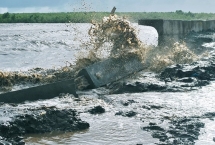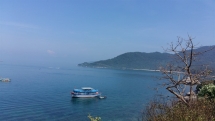Ecosystem off Cham Islands recovers after COVID-19
| Vietnam the third most active tech ecosystem in Southeast Asia | |
| Delta needs ecosystem-based solutions for climate-change adaptation | |
| Tourism boom threatens Chàm Island ecosystems |
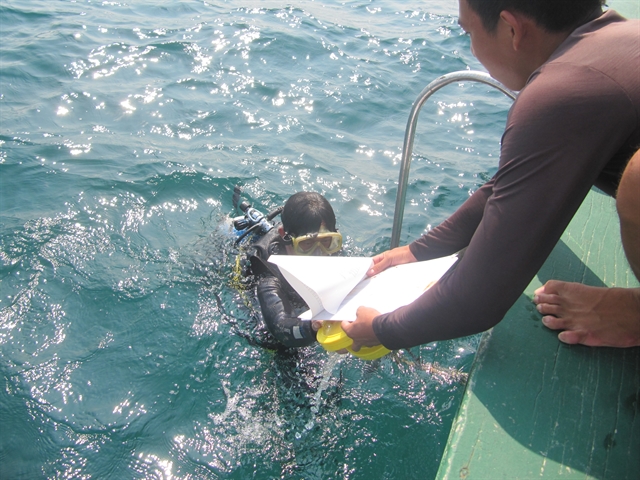 |
A per from the Cham Island Maritime Protected Area completes a check on coral reefs in waters off the islands. (Photo: VNS)
Experts and staff from the Cham Island Maritime Protected Area (MPA) have made the statement after returning from a regular inspection on coral reefs and ecosystems at eight sites off the islands last week, according to VNS.
They said over-tourism resulted in degradation of the ecosystem off the islands in recent years.
During the two-month social distancing order, the islands, a popular attraction welcoming 2,000 tourists each day, did not record any ping tours or boat trips.
“Coral reef coverage was well developed, but we have been collecting detailed information for a final report on coral reefs. However, many bottom feeders were recorded in coral reefs, especially holothurian and sea urchins,” said Nguyen Thi Thao, a worker at the MPA.
“The number of fish species living in the coral reefs was less than in previous checks.”
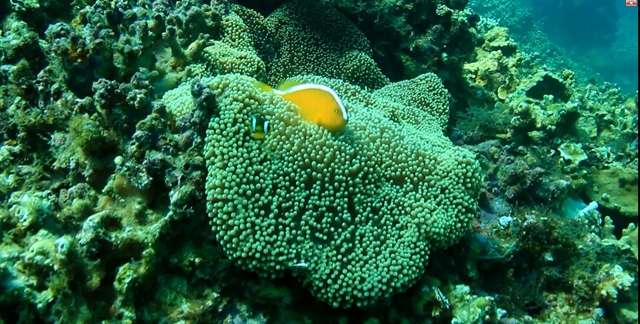 |
Coral is well developed in waters off the Chàm Islands. Limited human activities have helped the marine ecosystem recover. ( Photo courtesy of Chàm Islands MPA/ via VNS)
Vice director of the MPA, Nguyen Van Vu suggested that the islands reduce the number of visitors from a maximum of 3,000 to 1,000 each day to reduce pressure on the marine ecosystem.
He said the islands need a break for marine species and seafood resources to recover.
The islands often receive 5 tonnes of waste each day, which mostly was in-organic waste from tourists, not including wastewater and freshwater consumption as well as seafood and forestry products.
According to the MPA, more than 2,700 groups of coral species had been planted at 10 sites off the islands, and an area of 2,000sq.m of coral reef was developed following a coral reef restoration project in 2015-17.
The reserve covers more than 33,000ha, including 1,500ha of tropical forests and 6,700ha of sea, featuring a wide range of marine fauna and flora.
The islands are already overloaded, with a fleet of 152 boats including 145 speed boats travelling between Cua Dai Port in Hoi An and the Islands.
A report said the rapid increase of speed boats and fishing vessels was the main reason for 66 percent of sea grass off the islands being destroyed between 2009-18.
The islands, 20km off the coast of Hoi An, which was recognised as a World Biosphere Reserve in 2009, is one of few places in Vietnam ccessfully campaigning against plastic bags.
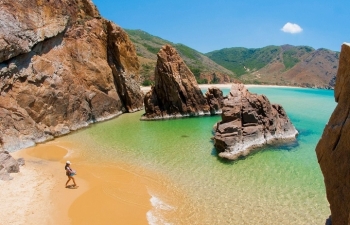 | Five gorgoeus miniature 'Maldives' in Vietnam A trip to Maldives is sure a coveted journey for many. However, travel fees might be a little exorbitant. So beachlovers can pick some destinations ... |
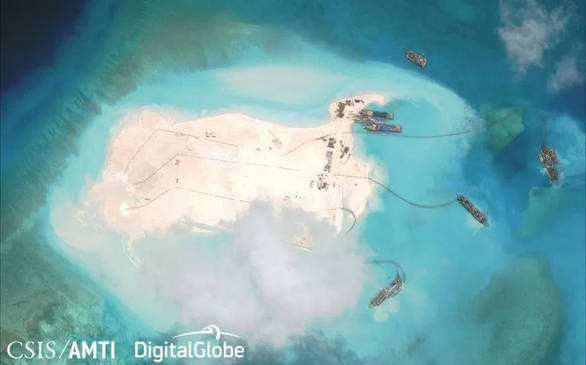 | China’s illegal activities in the Bien Dong Sea: How is it dangerous and should be vigilant? From early 2020 up till now, while humanity has been struggling against extremely dangerous enemy (known by different names including Corona Virus, Covid-19 ...), China ... |
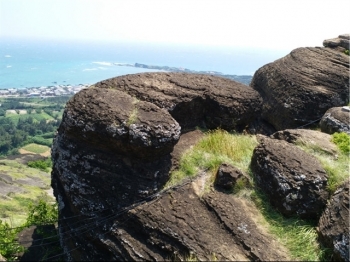 | Volcanic rocks found on top of Phu Quy Island A unique complex of sedimentary rocks formed from eruptive volcanoes 12 million years ago was found on the highest point of Phu Quy Island, southern Vietnam, according to ... |
Recommended
 Handbook
Handbook
Vietnam Moves Up 8 Places In World Happiness Index
 Handbook
Handbook
Travelling Vietnam Through French Artist's Children Book
 Multimedia
Multimedia
Vietnamese Turmeric Fish among Best Asian Dishes: TasteAtlas
 Handbook
Handbook
From Lost to Found: German Tourist Thanks Vietnamese Police for Returning His Bag
 Handbook
Handbook
Prediction and Resolution for the Disasters of Humanity
 Handbook
Handbook
16 French Films To Be Shown For Free During Tet Holiday In Vietnam
 Handbook
Handbook
Unique Cultural and Religious Activities to Welcome Year of the Snake
 Handbook
Handbook


